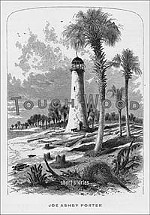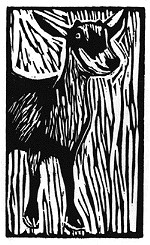Virgin Fiction
First Novels
By Martin Wilson, Fri., April 27, 2001

Gob's Grief
by Chris AdrianBroadway Books, 358 pp., $24.95
The Love-Artist
by Jane AlisonFarrar, Straus & Giroux, 256 pp., $23
Music for the Third Ear
by Susan Schwartz SenstadPicador USA, 255 pp., $22
Brave New Girl
by Louisa LunaMTV Books, 197 pp., $11.95 (paper)
Mary and O'Neil: Fiction
by Justin CroninThe Dial Press, 246 pp., $21.95
First-time novelists are undeniably sexy. What more proof do you need than a recent portfolio in Interview -- that bastion of edgy hipness and glossy glamour -- titled "The First Time," in which seven debut novelists discussed their creations as they posed in Armani and Ralph Lauren duds, mugging for the camera as if they were supermodels. Profiles of new novelists pop up everywhere these days, though not usually in publications with the glittery sheen of Interview. Publishers Weekly profiles a handful of first-timers each season, and just recently Time spent three pages reviewing spring fictional debuts. Thousands of novels are published each year, but it seems like the first-timers receive the lion's share of the attention. But why?
Part of the allure of debut novelists lies in their literary virginity -- first-timers, before and even as their books are published, are still unsoiled, unspoiled, and unproven. There's a purity about them -- they haven't failed or succeeded. They embody the future, symbolize promise, and perhaps hint at greatness to come -- there's always the unspoken hope that one of them will be the next Philip Roth or Toni Morrison. First-time publication is like a cotillion for writers, and debut novelists are the gussied-up belles at the ball, with butterflies in their stomachs, dreaming of the glorious future that awaits them. Of course, as exciting as first-time publication and the potential resulting attention might be, with all this comes pressure and harsh reality. As Samantha Gillison (The Undiscovered Country) wrote in a 1999 article on Salon.com, the newly published writer "can never write again without the understanding of what's in store" for his or her book. "You will never be the same writer again. Whether you first publish at 24 or 44 ... you must learn to reckon with your writing, and therefore yourself, as a marketable product."
In other words, the book is published, but then the reviews come in, the sales figures are reported, and even if the reviews are glowing and the sales strong, a certain reality sets in. The reality is that the first-time novelist becomes just another writer, pressed to deliver more books which should be even better than their first. Or should they? In the same Salon article, novelist David Gates (Jernigan, Preston Falls) is quoted as saying that "there is an expectation now that the writer's first effort must be their best or at least spectacular ... that you must cash in while you can ... and that the whole culture is rooting against you when you're established in your career." The underlying threat here seems to be that if a debut novel isn't a breathtaking, runaway commercial and critical success, the writer may never become a second-timer. It seems less the case nowadays that first novels are full of "autobiographical throat-clearing," as one writer coined it.
Chris Adrian, for example, has been publishing wonderful, original stories in journals and magazines for several years now that take on everything from voodoo, Jesus' siblings, and the afterlife of a woman who dies on the operating table. Judging by the assuredness of these stories, I knew Adrian had the goods. Indeed, it's hard to believe that his debut, Gob's Grief, is a first novel at all. Everything about it impresses -- its density, its ambition, its exquisite and fine-tuned language, and, most of all, its dazzling blend of history and imagination. That the story Adrian sets out to tell doesn't completely hold together in the end matters very little. It's the journey to the ending, rather than the ending itself, that showcases Adrian's fine achievement.
Adrian gives the 19th-century feminist Victoria Woodhull two fictional sons, Tomo and Gob. In 1863, 11-year-old Tomo jumps on a train and sneaks off to fight in the Civil War for the Union. Gob was supposed to have joined him, but he chickens out at the last minute and stays behind. The opening chapter, one of many mini masterpieces found here, follows Tomo as he joins up with the Ninth Ohio Volunteers, becomes their bugler, and meets his untimely death. At home in Ohio, a heartbroken and guilt-ridden Gob makes a promise to Tomo: "I will bring you back." It's a promise that obsesses him, and every character who comes into his orbit, for the entire novel.

Gob's story is framed by the stories of three other characters. There's Walt Whitman, a kind-hearted and eccentric man who spends the war years tending to dying young soldiers in a Washington, D.C., hospital. Years later, after seeing many "brothers" ravaged by war, Walt meets and befriends Gob in New York, where Gob has become a brilliant physician. But Gob, we learn, is no regular doctor, and he hasn't forgotten his brother. It is through Walt's eyes that the reader first hears of Gob's outlandish plan -- he's "building an engine to bring them back, my brother and all the rest. A machine to abolish death, to lick it like a cowardly Reb." For the mysterious machine to work, Gob says, "I need you, Walt. I need you especially."
The other two characters from whose eyes we see Gob are Will Fie and Maci Trufant, who both lost brothers to the war. Like Gob, whom he meets in medical school, Will is haunted by the death of his brother and all of the other soldiers -- he can literally see the ghosts of all the dead, following him around like pesky and hollow-eyed scamps. Meanwhile, Maci, whose dead brother's spirit has taken root in her left hand, finds herself in New York, where she falls in with Mrs. Woodhull, becoming the editor of one of her feminist papers, and eventually falling in love with and marrying Gob.
Each story propels the narrative forward to that moment the book has been building toward -- the horrifying realization of Gob's machine. Gob explains it best himself:
"What's grief if not a profound complaint? It's what the engine will do; it will complain. ... It will grieve for my brother and for your brother and for the six hundred thousand dead of the war. ... Our machine will grieve away the boundaries between this world and the next."
The machine is a giant amalgam of steel and pipes and glass plates and other odds and ends -- a bizarre monstrosity. It's the least successful aspect of the novel. I was never clear how it was supposed to work, even on a fantastical level -- and at times it seems as if Adrian doesn't know either. As a result, it's hard to believe in the machine the way you believe in Gob, Walt, Will, Maci, and all of the other colorful souls who inhabit the book. Despite this flaw, Gob's Grief is an admirable, remarkable work. There are flashes of brilliance to be found in these pages.
Jane Alison's first novel, The Love-Artist, also takes a page from history, employing fiction to imagine what led to the exile and banishment of the great Roman poet Ovid. Only two lines of Ovid's reputedly most passionate work, Medea, survive, and Alison uses this scenario to construct a psychological drama about artistic creation and literary legacy.
On a holiday at the Black Sea -- where he will be banished years later -- Ovid spots a young woman named Xenia, a beguiling beauty who's both a witch and a clairvoyant. Ready to begin his next work, the one that will cement his place in literary history, Ovid takes Xenia back to Rome with him "to be his subject, his muse" -- and his lover. In Rome, her effect on his work is immediate:

The very sight of her, and his black wax tablets began to fill, his eyes unblinking, hectic. If a word jarred it was violently struck out, a neat peel of wax on the tip of his stylus flicked off with his thumb. ... She seemed to warm between his fevered hand, to melt, to flow, to turn to waxen words.
Xenia is eager to ensure both Ovid's and her own place in history because "living is nothing. Unless you live on, you may as well never have lived at all." However, when Emperor Augustus' crafty daughter, Julia, becomes Ovid's patroness, Xenia's jealousy boils forth, initiating the events that lead to Ovid's fall from grace.
The writing here is a pleasure to read -- poetic, sensual, and crystalline. And the world of ancient Rome -- the food, the homes, the climate -- is nicely captured. For all the delights the novel offers, the plot of Alison's story feels a bit forced. Rather than flowing naturally, the events that transpire seem mechanical, more intent on reaching the end result -- Ovid's exile -- than on seeming entirely plausible. Still, The Love-Artist arrives at a powerful conclusion: As Ovid languishes in exile, despairing that he will be forgotten, the clairvoyant Xenia knows that her legacy will live on as surely as Ovid's poems will.
The lasting atrocities of different wars wreak havoc on the emotional lives of the two women at the center of Susan Schwartz Senstad's novel, Music for the Third Ear. Mette is a Norwegian Jew, middle-aged, settled into a childless marriage with her Nordic husband, Hans Olav. As an act of goodwill, they take in two political refugees from the former Yugoslavia: Zheljka, a Croatian, and her Muslim husband, Mesud. The arrangement doesn't work out, but the two refugees don't drop out of the picture; Mette won't let them.
Both women have been through much already. Mette, as the daughter of Holocaust survivors, has always been an outsider in her adopted country. Zheljka, during the war in her homeland, was locked in a schoolhouse with other women and raped repeatedly by the Serb soldiers, and as a result gave birth to a baby she gave up in Rome, where she first sought refuge. When the two women meet later, for a strained stab at friendship, their conversation becomes a contest to see who has suffered more. Mette wants Zheljka to know that she, too, understands the horrors of war: "What if she told her about all those nightmares in the air? Or how behind every joke her father ever told her was somebody's horrible death; even now, Mette couldn't hear people laugh without listening for the scream." Zheljka, however, tells her that "you do not know what you do not know."
Years earlier, Mette's father had made her promise that she would give birth to at least three children: one for her mother, one for him, and one for "the six million we have to get back." When she realizes she is infertile, that there will be no children, her psychological torment is understandable. When she learns of Zheljka's abandoned child back in Italy, she sets in motion a disastrous chain of events.
Told in fragments, sometimes out of sequence, and from multiple points of view, Music for the Third Ear is a piercing portrait of desperate lives. Senstad is most successful with Zheljka, capturing the psychological damage of her past in jarring stream-of-consciousness passages. Zheljka's child, who she names Zero, is also a fine creation -- a scarred, disturbed little boy, brought into the world through hate, clinging to a mother not able to give him the love he needs. The novel falters toward the end, however, turning from sharp and subtle drama into a loud, ripped-from-the-headlines melodrama. It's an unfortunate end to an otherwise powerful debut.

When so many first novels take on grand subjects, it's comforting to see a new writer unafraid to tackle that old staple, the coming-of-age tale. Louisa Luna's Brave New Girl fits snugly into this category and is a welcome addition to the genre. Fourteen-year-old Doreen despises her parents, mainly because years earlier they had thrown out her beloved older brother, Henry, who has been missing for years; Doreen vows never to forgive them for this. She also disdains her older sister, Tracey, who's everything the outcast Doreen is not -- beautiful, popular with boys, and pretty much an airhead. It's no surprise that Doreen's an outcast -- has a coming-of-age hero ever not been? Her only friend is Ted, who is probably gay; the two of them spend their days walking to the convenience store, sitting on street curbs, or listening to music.
The action of the novel unfolds in Pasadena during the summer Tracey brings home her new, older boyfriend, Matthew, an odd bird who takes an interest in Doreen -- perhaps too much interest. The novel has many familiar elements -- a misunderstood heroine, a dysfunctional family, suburban ennui, first love (or lust), and the thick air of alienation. What is fresh and will keep readers interested is Doreen's voice, which is angry, sad, and confused but also wise, edgy, and engaging. Here, in a priceless passage, Doreen offers a biting and oh-so-true riff on a standard of literature:
I've read Catcher in the Rye, but I can't even say it's my favorite book because it's everyone's favorite book. It's Tracey's favorite book, for God's sake. And I hate her for it, because she's always said she's in love with Holden Caulfield, but I know if she ever met Holden Caulfield, if Holden Caulfield had the courage to talk to her at one of the dumb parties she goes to, she wouldn't look at him twice because he'd be too skinny or too weird or he'd have too many freak-outs, and he wouldn't be some Calvin Klein type with a Caesar haircut and an eyebrow ring.
The story isn't complicated and the prose isn't showy (or all that breathtaking). But the novel is still an affecting and hard-nosed look at one teenage girl's bumpy stumble toward adulthood.
In the strictest sense, Justin Cronin's Mary and O'Neil is not a novel, but it isn't simply a collection of short stories. The publisher of this lovely book has simply labeled it "fiction," which, though accurate, doesn't adequately describe it. It's really a novel told through linked stories, but whatever you call it, Mary and O'Neil is an affecting portrait of the lives of a man and a woman as they pass from late adolescence to early adulthood, discovering all the joys and sorrows the world offers, and, most of all, their love for each other. Like a novel, it gives a full-bodied, encompassing portrait of two people and how certain moments shape lives.
O'Neil is the real star here -- his story and that of his family occupy the larger portion of the book. In the first story, "Last of the Leaves," we first glimpse O'Neil from the vantage point of his parents, who drive to visit him at college, where he is a budding cross country runner and in love with a vivacious co-ed. Through their eyes we see O'Neil -- his youthful optimism, his large heart -- and first learn of Kay, O'Neil's older, married sister, whose story is deeply intertwined with her brother's. On their way home from the weekend, as snow pours from the sky, O'Neil's parents' car slides off the road, down the floor of a valley, killing them both. It is a surprising yet painfully effective way to start the story, for this death will color everything O'Neil does for the rest of his days: "He was nineteen years old, happy. He did not know yet that it was possible for life to change, and that once it changed, it would never change back." The sadness he feels, which hits him much later, stems from "the simple wish that he could have become a man before they died." He does become a man, and Cronin is a sensitive and honest chronicler.
O'Neil and Mary finally come together, halfway through the book. Their love, as Cronin depicts it, bathes the book in warmth. I wonder if there has been a more apt description of sex between two people who are happy with each other: "Their lovemaking surprised them with its ease. So many years of nervousness; why had no one told them that sex was meant to be funny, and that they could say the things they wanted to and ask for what they liked?"
The only quibble I have with the book is that Mary gets the short-shrift compared to O'Neil; we need more of her. Still, Cronin has crafted a tender portrait of regular people -- parents, sisters, brothers, friends, children -- leading their lives as best as they can. Through his characters, he shows us the way happiness and sadness circle around each other, flashing through here and there, illuminating the roundness of human life. Cronin proves that first novels don't have to tackle grand subjects to be grand. ![]()








